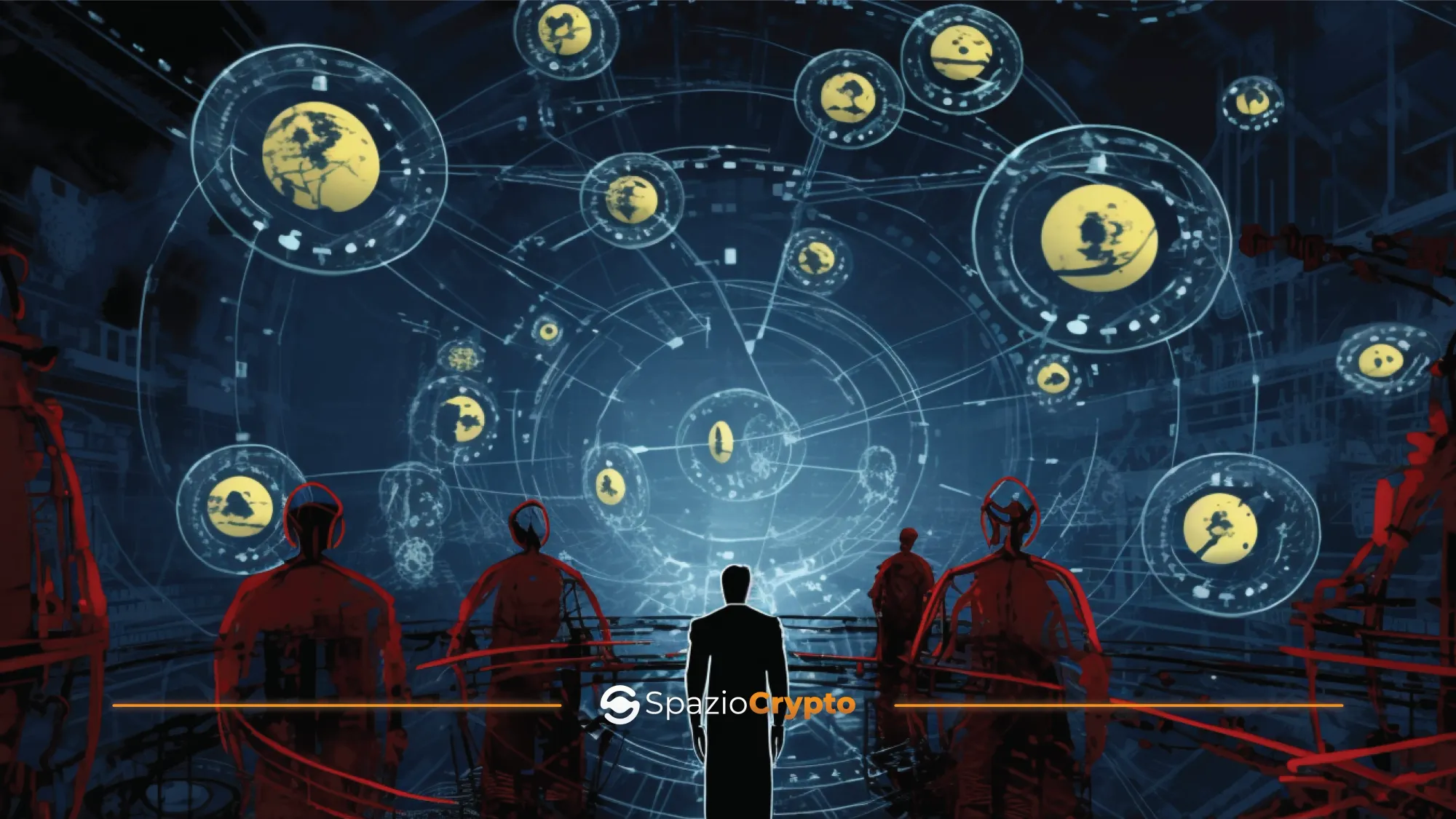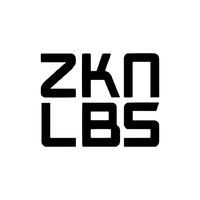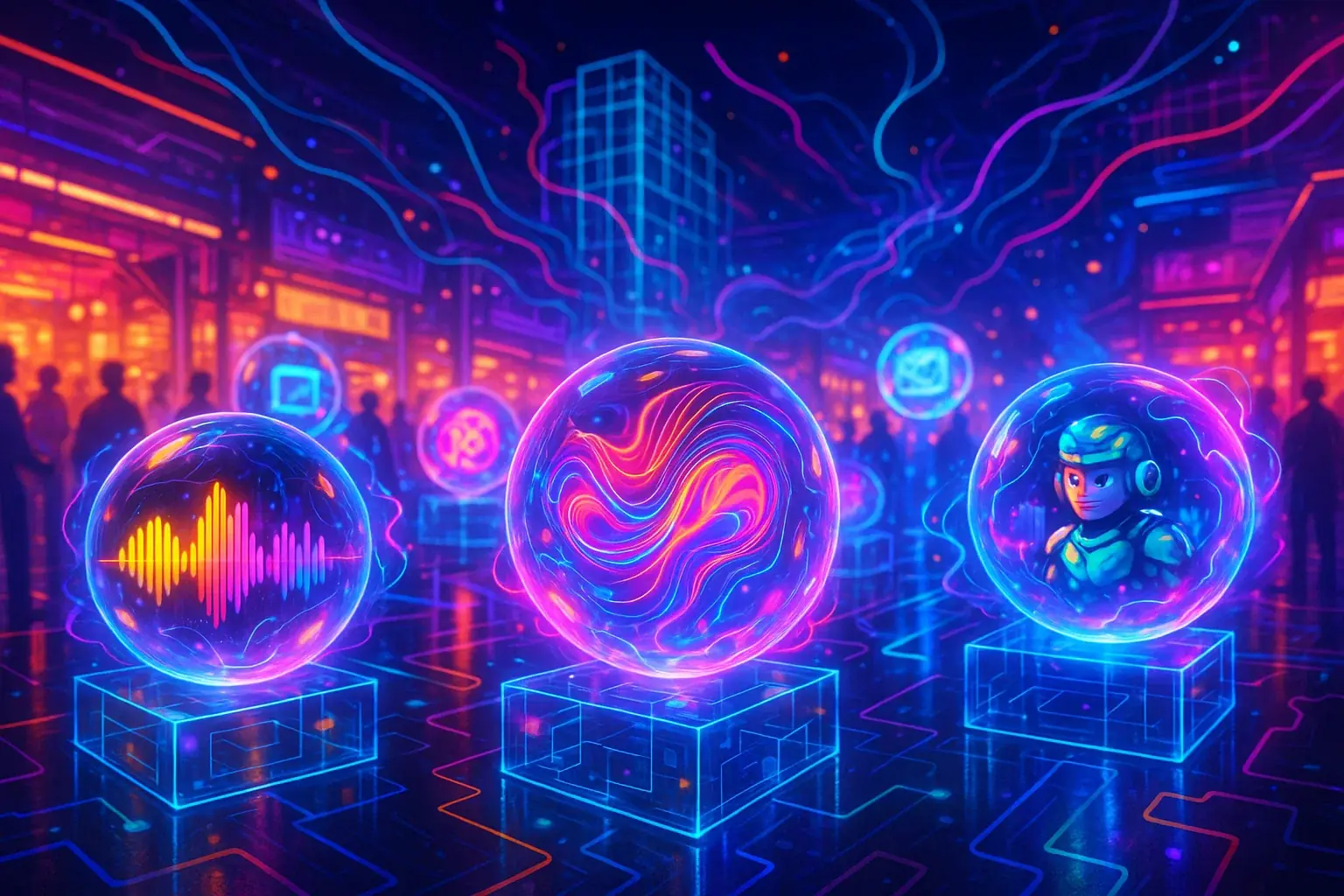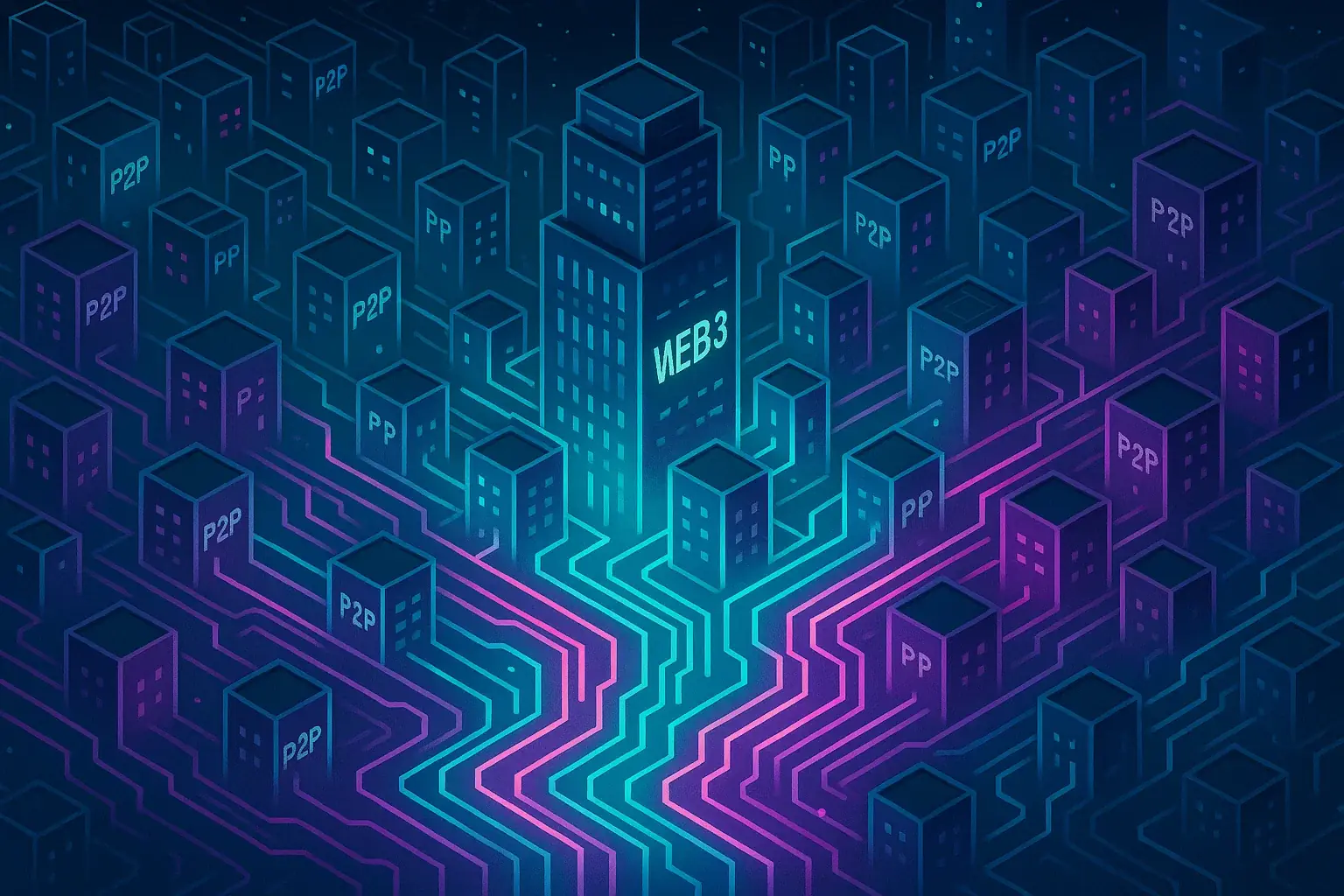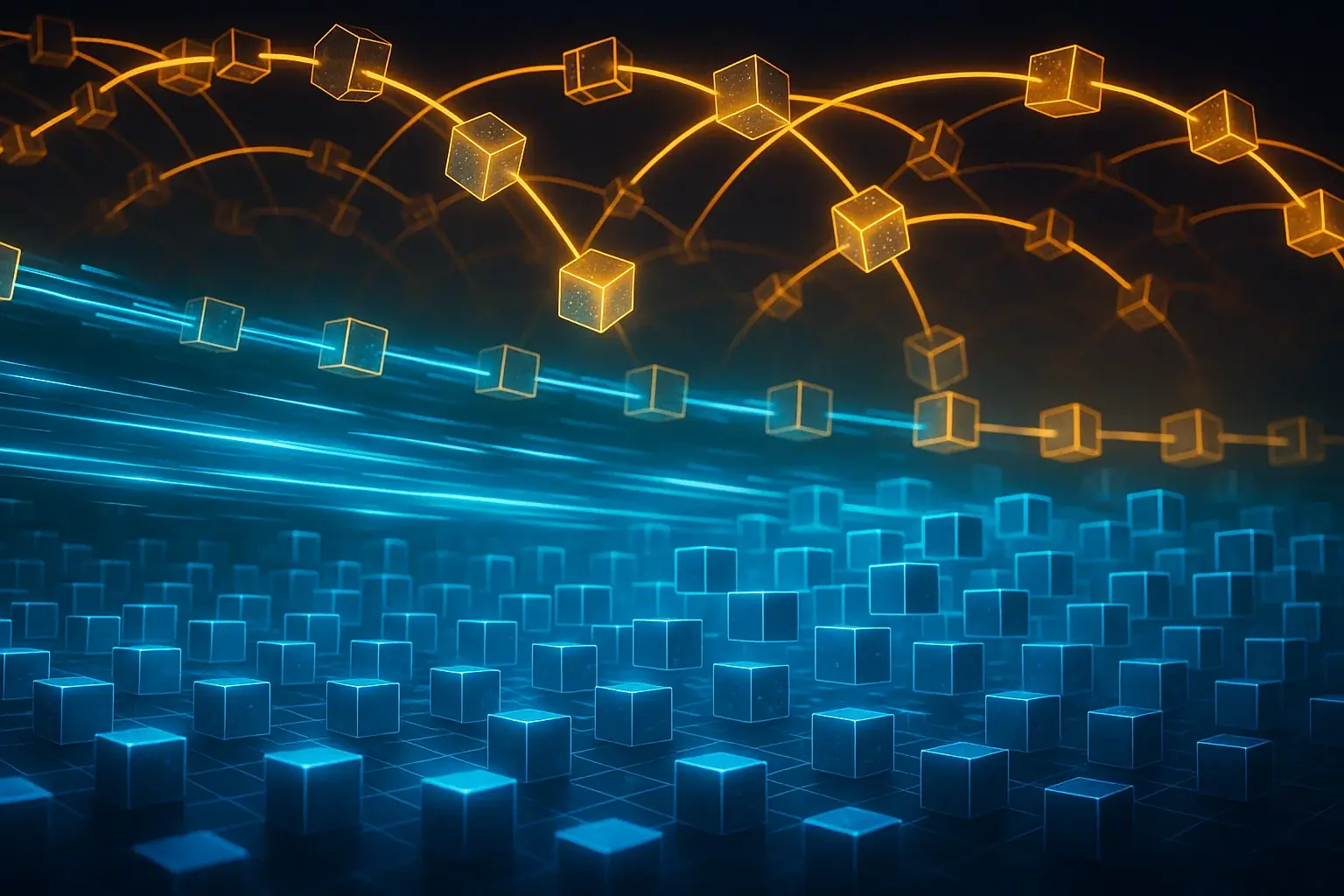DADOs, or Decentralised Autonomous Organisations, represent a decentralised, autonomous, and innovative organisation within blockchain and Web3 technology. We will explore the meaning behind this fascinating acronym and its deep roots in the philosophy of decentralisation.
What Exactly Are DAOs?
DADOs are organisations that operate on the basis of smart contracts on blockchain, enabling autonomous and transparent decisions through community voting. But what makes them so unique? Their essence lies in decentralisation, a fundamental concept that began in the early days of blockchain with the birth of Bitcoin.
The first mention of DAOs made their way into the world with the advent of Ethereum, a blockchain platform designed to support the creation of smart contracts. It is here that the concept of DAOs comes to life. In 2016, the most famous DAO at the time raised funds through an ICO (Initial Coin Offering) to finance decentralised projects. However, this episode was marked by a cyber attack that raised crucial questions about the security and governance of DAOs.
At Spaziocrypto, we are committed to positioning ourselves as an impartial and free source of information. We believe strongly in decentralisation, and we are committed to doing our part to impart knowledge and critical thinking. In our view, defining a DAO means peering beyond its technological structure and grasping its fundamental philosophy. Decentralisation is not just a feature, but a vision that promotes autonomy and equity. DAOs embody this spirit, allowing participants to make decisions without the need for central authority.
How DAOs Work
Now that we have laid the groundwork on the definition and origins of DAOs, let us go deeper to understand the complex internal mechanisms that allow these autonomous organisations to operate without central guidance. DAOs, fundamentally, consist of smart contracts. A smart contract is a piece of code executed on a blockchain, and in DAOs, this code defines the organisation's rules and operations. For example, the contract might determine how funds are to be spent, what decisions require community consensus, and the rules for voting.
At the heart of a DAO is the principle of distributed consensus. Participants have the power to vote on crucial proposals and decisions. Each member of the DAO has an amount of voting power proportional to his or her share of tokens in the DAO. This weighted voting system ensures that those with greater involvement have greater influence in decisions, reflecting a kind of democracy based on financial participation.
Transparency is a cornerstone. Every transaction and decision made within the DAO is immutably recorded on the blockchain, making it accessible to anyone who wishes to examine it. This level of transparency acts as a deterrent against fraud and corruption, helping to build trust within the community.
However, despite their advantages, DAOs are not immune to challenges. The notorious attack on the DAO from 2016, in which a bug in the code allowed a hacker to embezzle a considerable amount of money, raised concerns about the security of DAOs. This incident has led to a wide debate on the need to improve the security and governance of DAOs.
ADOs' Advantages and Challenges
Now that we have a deeper understanding of how DAOs work, it is time to explore the advantages they offer and the challenges that may arise during their decentralised governance journey.
Advantages of DAOs
Decentralisation and Democratisation: DAOs represent a major step forward in decentralisation, allowing anyone holding tokens to participate in decision-making. This model democratises governance, eliminating the need for a central authority figure.
Efficiency and Transparency: Thanks to smart contracts and immutable registration on blockchain, transactions and decisions within DAOs are extremely efficient and transparent. This clarity helps build trust within the community.
Global Access to Capital: DAOs can cross geographical barriers, allowing anyone with an internet connection to participate and contribute. This opens up new funding possibilities for projects around the world.
DADO challenges
Security and Technical Risks: The 2016 DAO attack highlighted technical vulnerabilities that can be exploited. The security of DAOs is an ongoing concern, and the community is constantly looking for ways to improve the robustness of smart contracts.
Manipulation Risk: In a context where voting is weighted according to the possession of tokens, there is a risk that some participants with a large amount of tokens may influence and manipulate decisions to their advantage, defying the principle of fairness.
Lack of Regulation: The decentralised nature of DAOs may make it difficult to implement effective regulations. This could open them up to misuse or illegal activities.
The Future of DAOs
These decentralised autonomous organisations are constantly evolving, driven by technological growth and emerging challenges. We will explore the long-term perspectives and possible directions that DAOs could take.
Technological Evolution
Security Enhancements: The DAO community is investing considerable effort in researching and developing solutions to improve the security of smart contracts. New emerging technologies and protocols aim to make DAOs more resilient against attacks and vulnerabilities.
Integration with other Blockchain Technologies: DAOs could expand beyond the boundaries of a single blockchain by integrating with other blockchain networks. This could allow for greater interoperability and open up new opportunities for collaboration between different communities.
Social Implications
Redefinition of Governance: With the experience gained, DAOs could help redefine traditional models of governance, influencing decisions at the corporate and even at the government level.
Financial Inclusiveness: DAOs could continue to play a key role in opening access to financial services to a wider population, breaking down financial barriers and creating opportunities for the unbanked.
New Economic Models: The ability of DAOs to facilitate decentralised collaboration in the Web3 could lead to the creation of new economic models based on resource sharing and equitable participation.
Sustainability and Environmental Impact: The increasing focus on the environment could push DAOs to develop mechanisms that encourage sustainable practices and reduce the environmental impact of associated blockchain activities.
As blockchain technology continues to grow and innovative solutions are sought, DAOs could become a key pillar in the socio-economic dynamics of the future.
Real-World Applications of DAOs
While we have explored the foundations and potential of DAOs, it is crucial to examine how these decentralised autonomous organisations find real-world applications. Their versatility offers a number of revolutionary opportunities in different sectors. In this chapter, we will look at some of the practical applications of DAOs and how they are influencing the evolution of traditional processes and structures.
Decentralised Finance (DeFi)
DADOs are having a significant impact in the decentralised finance (DeFi) sector. Lending platforms, decentralised cryptocurrency exchanges and wealth management protocols are just some of the applications where DAOs play a key role. The ability to make decisions autonomously and transparently makes DAOs a natural choice for financial innovations such as peer-to-peer lending, yield farming and governance protocols DeFi.
Corporate Governance
DAOs are beginning to penetrate the traditional corporate world, offering new governance models. Organisations can use DAOs to make internal decisions, allowing employees and shareholders to participate in strategic choices. This form of corporate democracy can lead to greater transparency and involvement of community members.
Non-Profit Organisations
DADOs offer an innovative approach for non-profit organisations. The ability to manage funds transparently and allow community participation in decisions can lead to greater trust on the part of supporters. DAOs can also simplify the distribution of aid and resources in emergency situations.
Cultivation-of-Creativity
In the arts and cultural sector, DAOs are emerging as tools for cultivating creativity. Artists and creators can form decentralised communities to finance projects, share ideas and make collective decisions on artistic direction. This model can help eradicate middlemen and allow greater autonomy for artists.
Supply Chain and Traceability
DAOs have the potential to revolutionise supply chain management by improving traceability and transparency. Using smart contracts, DAOs can monitor and record the entire supply chain, from producer to consumer, guaranteeing authenticity and reducing the risk of fraud.
In conclusion, real-world applications of DAOs are continually expanding, spanning different sectors and offering innovative solutions. Their ability to transform abstract ideas into tangible solutions is helping to shape the future of organisational and social dynamics. With continued technological development and increasing adoption, DAOs are proving to be not only a revolutionary theory, but an ever-evolving reality.
Final Reflections on the Birth of DAOs
After a journey through the definition, operation, benefits and challenges, and future prospects of DAOs, it is time to draw conclusions and reflect on the impact of these decentralised autonomous organisations. DAOs represent a significant innovation in blockchain and decentralised governance. Their structure, based on smart contracts and community voting, seeks to eliminate central intermediaries and open up new opportunities for global participation. The benefits offered by DAOs, such as efficiency, transparency and global access to capital, are obvious, but we cannot ignore the challenges, such as security and the risk of manipulation.
Looking to the Future
The future of DAOs is compelling and full of potential. Technological evolution, with a focus on security and integration with other blockchain networks, promises to make DAOs more robust and versatile. The societal implications are equally fascinating, with the potential to redefine governance, promote financial inclusivity and contribute to more equitable and sustainable economic models.
However, DAOs face significant challenges and questions along the way. How will their regulation be managed? How will DAOs deal with the environmental issues associated with resource-intensive use? These are crucial questions that the DAO community will have to address intelligently and collaboratively.
The DAO Revolution
In closing, in this article in Spaziocrypto's Web3 Guide we verified that DAOs represent a key stage in the decentralisation revolution. While there is no shortage of challenges, their impact could be transformative, influencing sectors beyond the cryptocurrency world. The DAO experience has taught us that the path towards decentralised governance is not without its obstacles, but it is through resilience and continuous innovation that the vision of DAOs will be able to take hold.
That the future of DAOs brings with it new opportunities, overcome challenges and a positive transformation in organisational and social dynamics.


